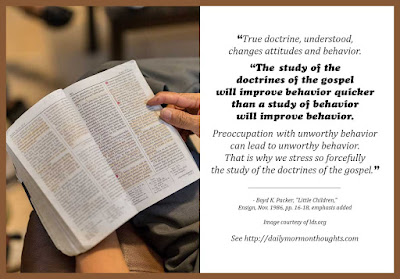"The teachings and policies of the Lord’s restored Church apply these eternal truths in a way that can be fully understood only in the context of our Heavenly Father’s loving plan for all of His children."Thus, we honor individual agency. Most are aware of this Church’s great efforts to promote religious freedom. These efforts are in furtherance of our Heavenly Father’s plan. We seek to help all of His children—not just our own members—enjoy the precious freedom to choose."Similarly, we are sometimes asked why we send missionaries to so many nations, even among Christian populations. We are also asked why we give enormous humanitarian aid to persons who are not members of our Church without linking this to our missionary efforts. We do this because the Lord has taught us to esteem all of His children as our brothers and sisters, and we want to share our spiritual and temporal abundance with everyone."- Dallin H. Oaks, "Divine Love in the Father's Plan," General Conference April 2022, Sunday afternoonClick here to read or listen to the full talk
President Oaks spoke in his conference address about the eternal love of God that is behind the doctrine and policies of the Church. Our lack of understanding of that love often causes us to misunderstand or question the doctrines and policies. When we ever feel confusion or uncertainty, we should remember that our view is likely incomplete; faith can fill in the missing parts temporarily until understanding comes.
The actions and decisions of the Church are based on God's love for all of His children. We need never doubt or question that. President Oaks points out specific examples of some policies that illustrate the point, including missionary effort and humanitarian contributions:
My experience as a full-time missionary in the humanitarian services program program confirmed that principle. We were carefully instructed and trained that we were NOT proselytizing in our efforts; we were representatives of the Church, sharing humanitarian donations without restriction or expectation. It was a beautiful experience!
(Compilation and commentary by David Kenison, Orem, Utah, 2022)
















